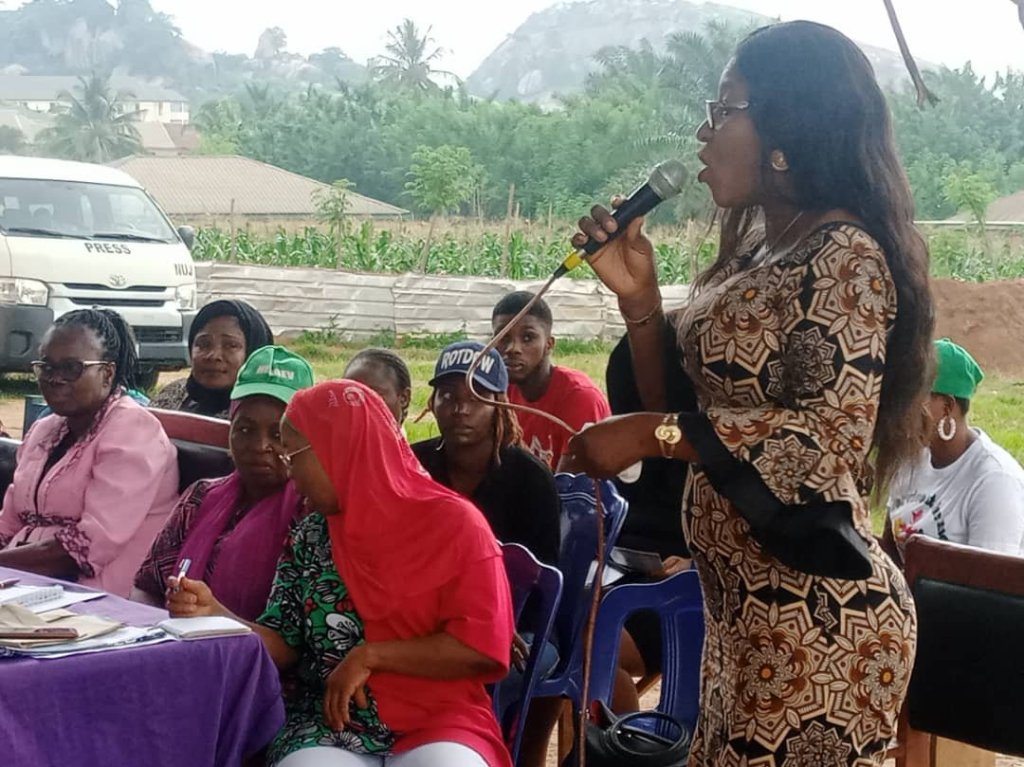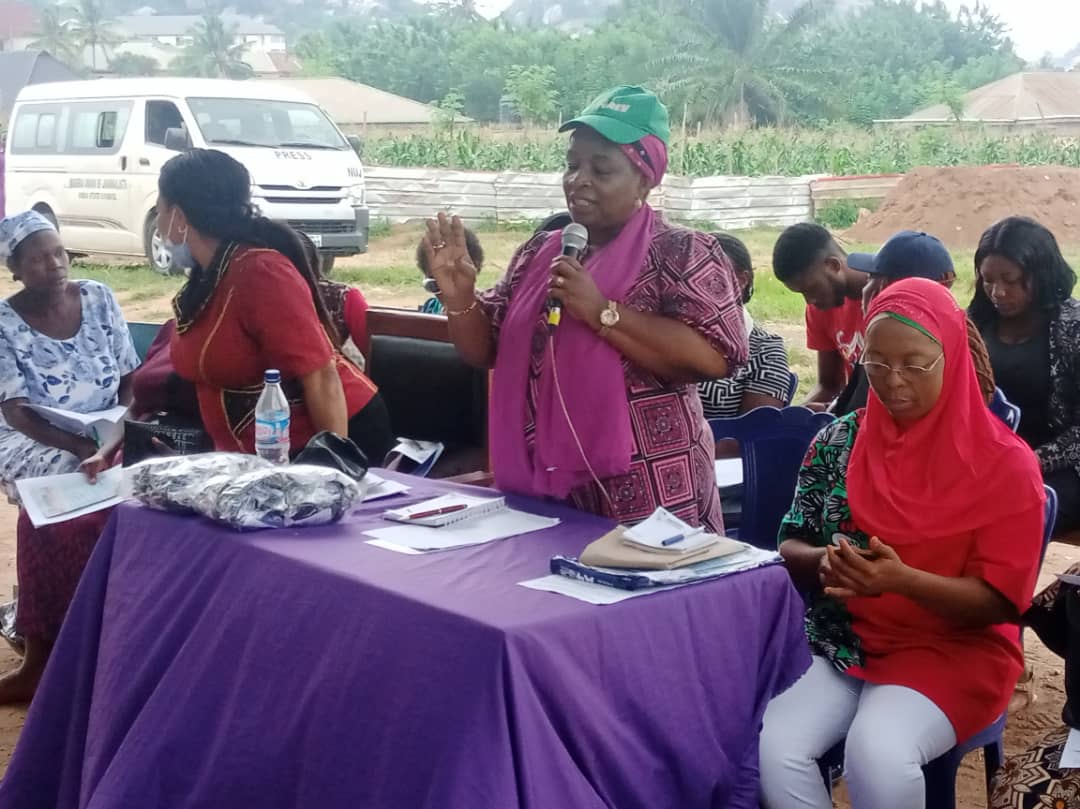By Roland Bayode
In the course of providing a safe and hygienic alternative method to ensure that girls and women get padded during their menstrual flow, The Network of Reproductive Health Journalists in Nigeria (NRHJN) a Non-Government organization in Ondo State has taken their humanitarian sensitization campaign to Igoba Community High School, Akure to sensitize students on the most hygienic, affordable and alternative ways to aid girl child safety and menstrual hygiene management.
In her speech, the State Coordinator, Mrs. Fatima Muraina, said they had noticed that related sensitization is mostly done in urban places while rural areas are often neglected.
This reason according to her, was why they commenced the advocacy to sensitize girls on alternative adequate solutions to pads since the dwindling economic situation of the country had drastically reduced the supply of pads by relevant organizations for girls.

Mrs. Fatima noted that menstruation has been associated with various myths and taboos in many societies, right from one ethnic to another which consequently affect girl child and women generally.
“These taboos should be stopped immediately, and people should face the reality. The clamor for sanitary pads to be made available for girl children has become stringent in recent time, also the dwindling economic situation of the country has reduced the supply of pads by relevant organizations for girls. However, we need to look out for alternative ways to ensure women get padded during their menstrual flow”.

The guest speaker, who is the Former Senior Medical Officer at State Specialist Hospital, Akure, and now the CEO, Health Solutions and Gender Violence Centre, Dr. Mrs. Fausat Aragbaye gave an extensive teaching on the topic: ‘Action and Investment in Menstrual Hygiene and Health’.
She explained that menstrual health and hygiene (MHH) is the accessment of menstrual hygiene products to absorb the flow of blood during menstruation, privacy to change the materials, and access to facilities to dispose of used menstrual management materials.
She asserted that menstrual hygiene management can be very hard for girls and women in developing countries, where clean water and toilet facilities are often inadequate.
She noted that hygiene-related practices of women during menstruation are of considerable importance, as they may increase vulnerability to Reproductive Tract Infections (RTI’s).
“Poor menstrual hygiene is one of the major reasons for the high prevalence of RTIs in the country and contributes significantly to female morbidity.”
She added that women and girls of reproductive age need access to clean and soft absorbent sanitary products, which in the long run protect their health.
“Good hygiene, such as the use of sanitary pads and adequate washing of the genital area, is essential during menstruation.”
She made emphasis that all women must come together to create awareness in their relative’s communities and places of worship to help women and girls who are experiencing period poverty by donating pads of any kind ( home-made or factory-made) for free so that they can do their monthly periods without hardship.
She remarks that students should always adhere to some easy hygiene tips that would keep them safe from contracting infections.
“They should not use pads or tampons for long, they must keep the pubic area clean by disposing of used pads safely. They must as well stay away from vaginal cleansers and douches, rest, and catch up on sleep.” She said.
The Chairperson of the Nigeria Association of Women journalists (NAWOJ), Ondo State Chapter; Mrs. Doris Olumoko who graced the occasion lauded NRHJN, and explained that most women and girls carry their pad for too long because there is no adequate place to change and that a lot has been said about Government making provisions for pads and that every individual must take charge in giving adequate support.

“I would like to charge the non-government organization that interfaces with foreign partners to help with resources to support the girl child. Government and private sectors in Ondo state must have good toilets with running water so that girl child and women generally can change their sanitary pad as at when due.”
The CEO of Restoration of Dignity of Womanhood (ROTDOW), a Non-Governmental organization that enables students to know the gateway to womanhood and the key to healthy Reproductive life for adolescents Mrs. Omolona Olabisi, represented by Adeyemi Adedoyinsola also lauded the network for bringing this sensitization to the rural area.

He pleaded with the Government to support this programme in enabling girls in school to know more about menstrual hygiene management and to further prevent girls from being vulnerable by providing sanitary pads for sensitization. They also supported the program with a face mask for the student.

